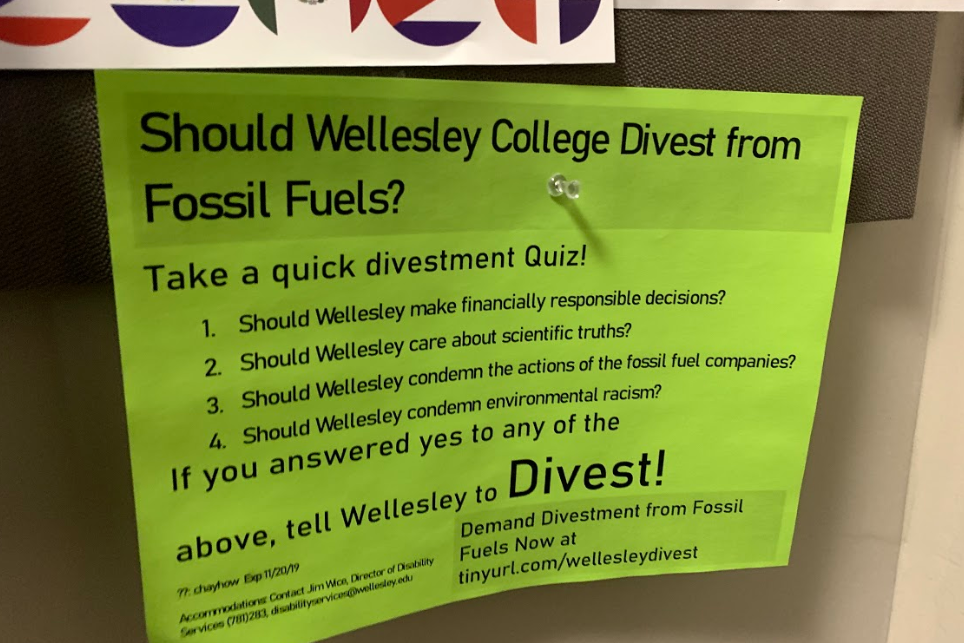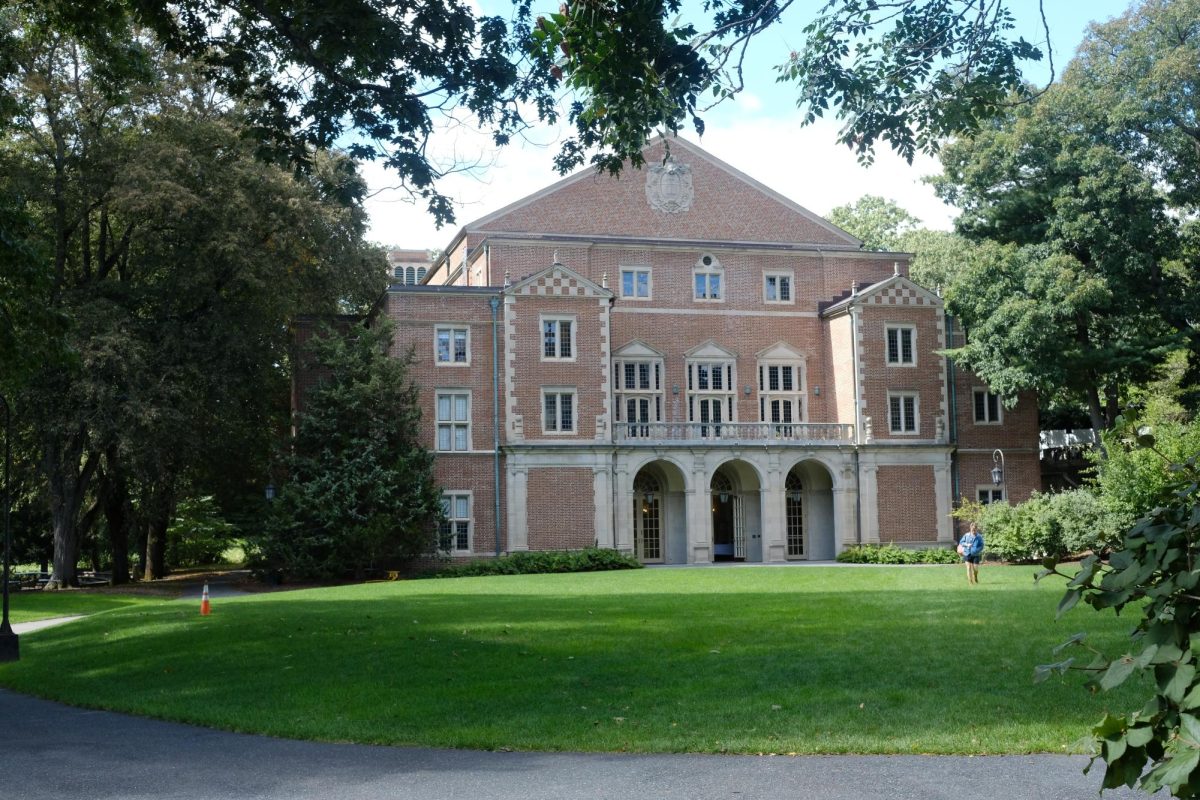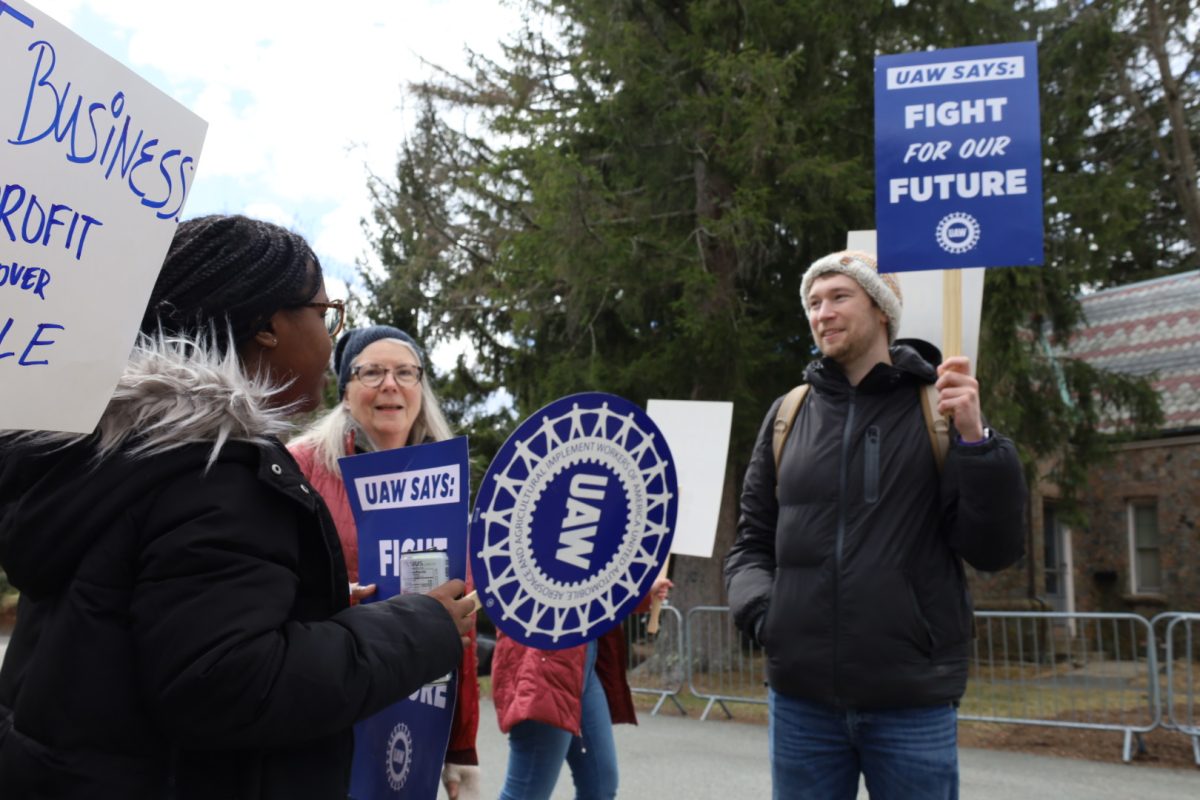The student organization Renew Wellesley is currently working on a proposal that advocates for Wellesley to “ethically and responsibly” divest its endowment from the fossil fuel industry. They also urge the school to invest in industries that do not pose harm to the student body or marginalized groups such as private prisons or pharmaceuticals. The demand comes on the heels of other colleges and universities, such as Smith College and the University of California system, that have recently announced plans for divestment.
According to Claire Hayhow ‘21, a member of Renew Wellesley, the group does have concerns about the financial impacts of investment in fossil fuels. However, the majority of their qualms are in regard to the morality of the decision. Hayhow points to the ways that the investment perpetuates climate change, which has a disproportionate effect on vulnerable low-income communities.
“The College cannot claim to prepare its students for roles in global leadership while continuing to fund and be funded by an industry that strips us of our futures,” Hayhow explained. “In investing in fossil fuels, the College legitimizes the continuing destruction of these communities homes, lives and land caused by climate change.”
Similar concerns are shared by the 496 signatures that petition has garnered by 8 p.m. on Nov. 12 since its launch a week earlier via a Google form, along with intensive on-campus flyering. Efforts to collect more are ongoing. In addition to student signatures, members of the group with access to the petition report that it has signatures from faculty and as well as some members of staff.
The group intends to submit the proposal to the Subcommittee on Investment Responsibility with the deadline of encouraging the Subcommittee to recommend a plan to divest both directly and indirectly from fossil fuels by the end of this academic year and to disclose a plan to do so. Because it is ultimately the Board of Trustees that must make the decision to divest, Renew’s goal is for the subcommittee to report the findings to the general Investment Committee, which, as a subcommittee of the Board of Trustees, will report their findings to the whole group.
Renew Wellesley was founded in the spring of 2018, when students disrupted a meeting of the Board of Trustees to ask that the school transition from an outmoded cogeneration plant to a more sustainable form of energy. Wellesley College now sources its power from the Town of Wellesley’s electric grid. In addition, the students requested that the Board of Trustees clarify how quickly the school intended to move towards renewable energy, as 2018 was declared to be Wellesley’s “year of sustainability.” According to Hayhow, the purpose of the organization is “to use direct action to mobilize students on issues of environmental justice that can addressed on the campus level.” The group is also working to make Wellesley 100 percent renewable by 2025, rather than the school’s previous goal of 100 percent renewables by 2020.
“On a personal level, I believe that continuing to profit off of an industry that spends billions of dollars not only manufacturing lies about climate change, but actively destroying communities that are already at risk, is far beyond morally reprehensible for a liberal arts institution of Wellesley’s caliber,” Katie Christoph ‘21 said. “We are better than this.”






